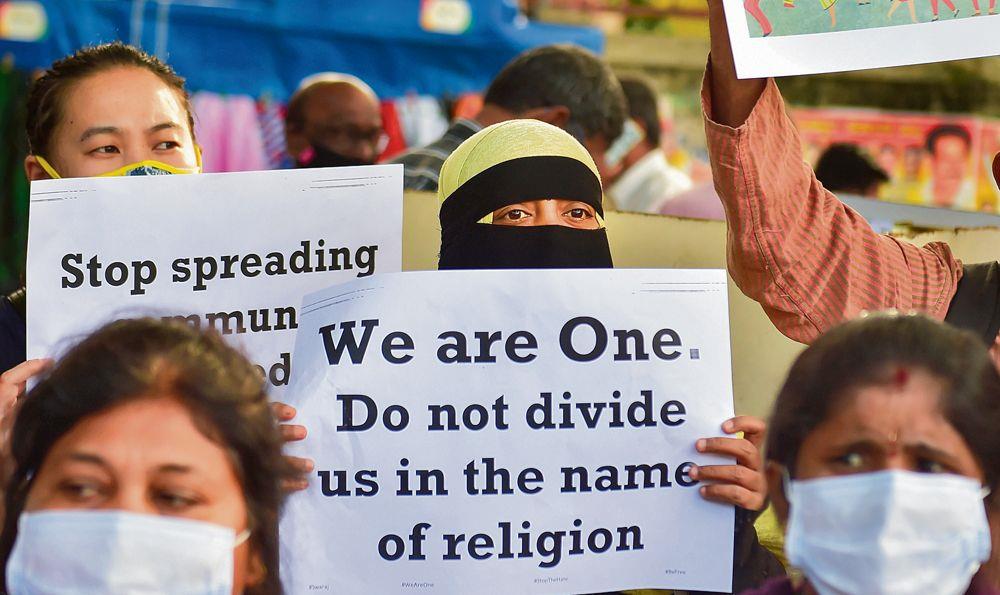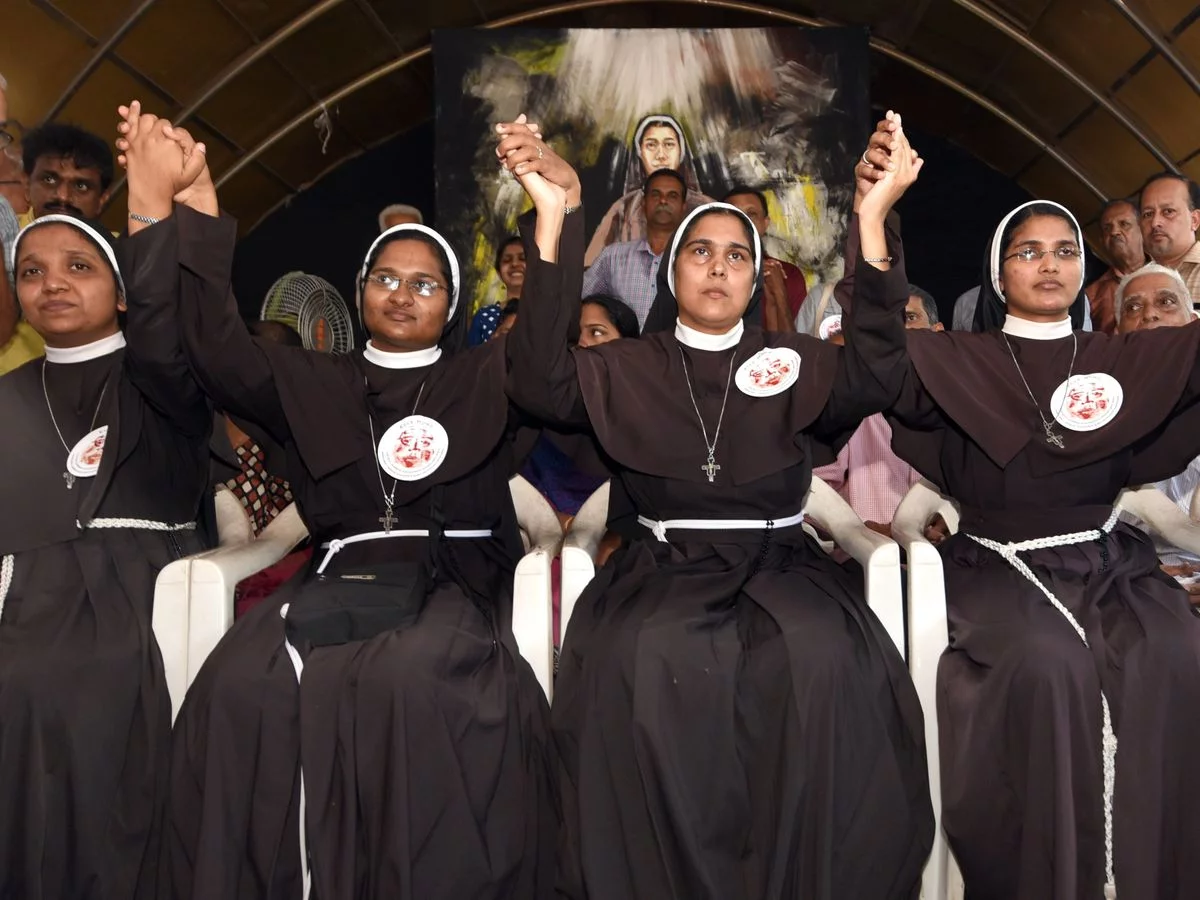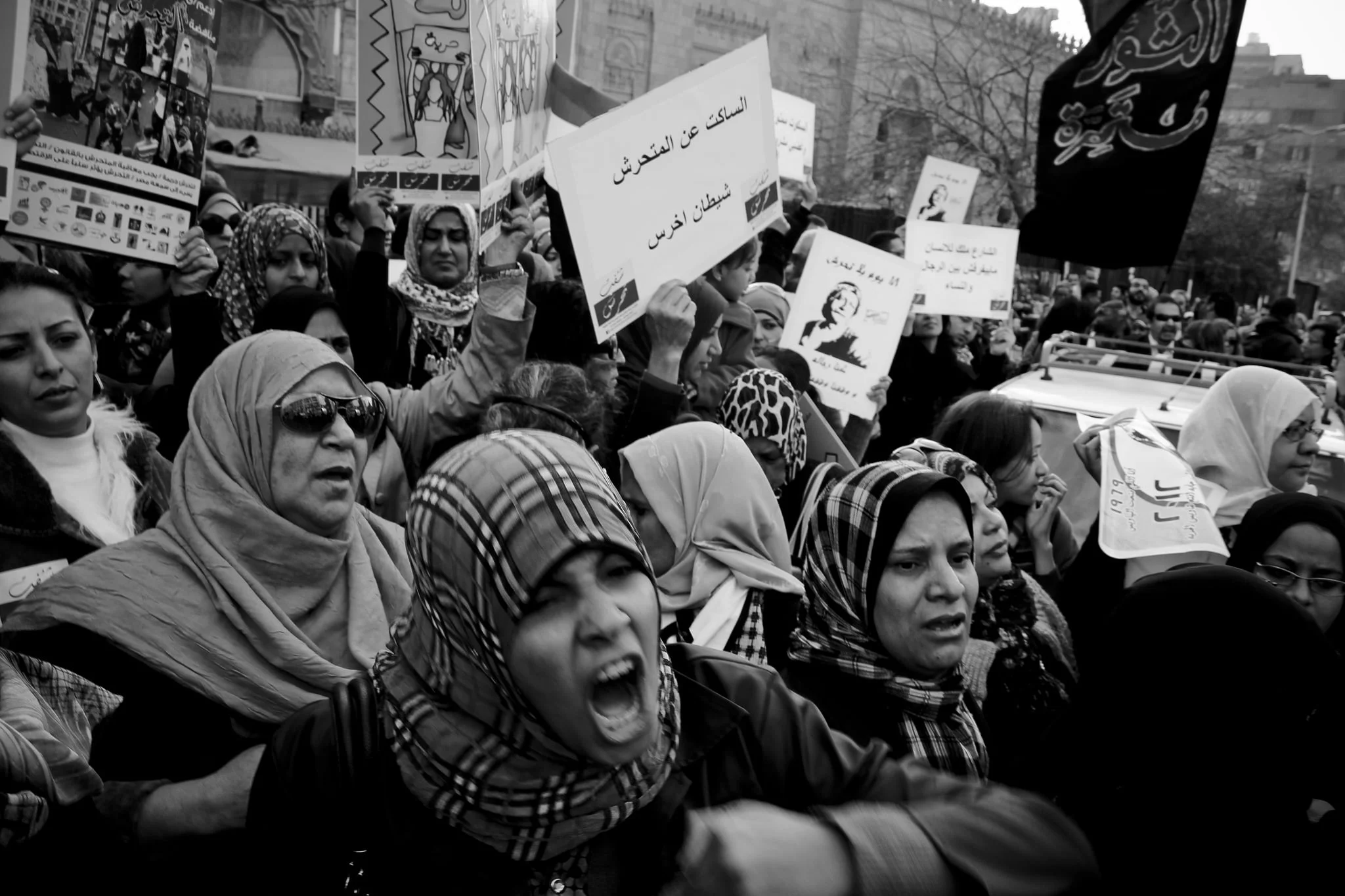Following the pitfall of the forced massive religious conversion, the law is under consideration and the sanction of the Supreme Court. The states such as Uttarakhand, Uttar Pradesh, Himachal Pradesh, and Madhya Pradesh have introduced anti-conversion laws in states concerning the security of citizens in the country. Anti-conversion laws help to regulate or prohibit the conversion of faith to one another. The restrictions are aimed at the prevention of fraudulent acts of religious conversions, and the law preserves cultural and religious diversity in the country.
For several reasons, anti-conversion laws claim the protection of individuals from being coerced or forced into converting to another religion. Anti-conversion law was considered to reduce the religious tension between communities providing social harmony among the public. The recent claim of CJP states that the law invades the privacy, freedom, and autonomy of one individual. The supreme court says the petition filed is challenging the anti-conversion law in the eight states in order to enact the law in India.
While critics argue that the anti-conversion law is an infringement upon the choice of the individual and an indirect restriction on religious freedom, repression of one religion over the other, the provision of anti-conversion law is vague and open to interpretation. The consistent criticism of anti-conversion keeps the law inconsistent in enforcement. Having said that, India is secular and democratic.
The right to freedom of religion enshrined in the Indian constitution is challenged by anti-conversion laws in the country. The religious conversion that is forced or persuaded has been illegalised. The law slips the official establishment, targeting religious clusters of a particular group of social class. For the reason that, the fear of religious discrimination. The critic states, anti-conversion law can perpetuate religious discrimination among religious as well as social institutions.
For several reasons, anti-conversion laws claim the protection of individuals from being coerced or forced into converting to another religion. An aim is to protect the vulnerabilities, especially of children, women, and queer by regulating the conversion of faiths. Anti-conversion law was considered to reduce the religious tension between communities providing social harmony among the public. The subject matter of anti-conversion law is often debated and disputed. The recent claim of CJP states that the law invades the privacy, freedom, and autonomy of one individual. The supreme court says the petition filed is challenging the anti-conversion law in the eight states in order to enact the law in India.
The law that entails clarification
In September 2021, Karnataka BJP MLA Goolihatti Shekhar addressed in his speech that, particularly in his constituency, around 15,000 to 20,000 people have been converted to Christianity. He mentions that his mother also has converted to Christianity. Later in 2022, Karnataka Assembly demanded the enactment of the anti-conversion bill. Following the bill, the Karnataka Legislative Assembly passed the Karnataka Protection of Right to Freedom of Religion Bill, 2022, known as the anti-conversion bill in the state.
The law proposes imprisonment of three to five years including a fine of Rs. 25,000 and many more for illegal conversion into faiths. The bill also provisions that a person who wishes to convert the faith shall give a declaration in advance to the District Magistrate or the Additional District Magistrate. Notwithstanding the statement of Goolihatti, as revealed in The News Minute report, the allegation of massive conversions in the state of Karnataka was false.
Jayna Kothari, Senior Advocate and co-founder of the Centre of Law and Policy Research on The Indian Express explains the law is to prevent religious conversion which is based on force, forgery, misrepresentation, or by marriage. Any conversion that, according to anti-conversion laws, would be an unlawful, criminal offence. Such as marriages performed under forced conversions marked void. The law inflicts several procedures.
In fact, the Supreme Court is open to questions and criticisms concerning anti-conversion law. Times of India reports that, the Supreme Court bench, Chief Justice D.Y. Chandrachud and Justice P.S. Narasimha, has requested responses from seven states on the petition challenging the rationality of the Religious Freedom Act. The petition outlines that the law of anti-conversion is a violation of the fundamental right to freedom of religion.
A person who wants to convert his or her religion is supposed to go through the complete process before registering the marriage which is thirty days in advance. The application for conversion was later revised by the district magistrate to conduct a detailed inquiry with the help of the police force; the law inflicts the declaration as a time constraint. The law allows any member of the family to raise their opinions while the examination of the declaration is submitted by the couple for conversion in religion. Therefore, mass conversions in a secular and independent country like India is a threat to the religious identity of the citizen. The rapid enforcement of anti-conversion laws can discriminate against the religious institutions in the country.
Anti-conversion laws: An intrusion in privacy and freedom of religion
Since the period of British colonialism, the law restricting religious conversions has been introduced in states such as Madhya Pradesh, UP, and Himachal Pradesh targeting inter-faith marriages in the state, latest introduction of the Karnataka government bill for the protection of freedom of religion. Today, around eight states in India perform the anti-conversion law.
Also read: Interfaith Marriages: Gujarat HC Stays Law Penalising Forceful Conversion Through Marriage
The mandatory enforcement of anti-conversion law intervenes in the privacy of an individual. The law violates the right to freedom of one person in choosing their faith. Privacy and freedom of religion are often challenged by anti-conversion. A bill for unlawful conversions has passed in various states that interfere with the free practice of religion in states. The debate around religious conversion states the law is a proselytizer commotion, which has been labelled as ‘love jihad’ in the country.
Counting the jurisdictional hearings such as the Hadiya Case, the K.S. Puttaswamy case, and many others, in which the court addressed the matter of fact that the right to choose a partner or live with is a choice of an individual under article 21 of the citizen’s fundamental right to life and liberty.
K. S. Puttaswamy vs Union of India
A case titled right to privacy was a landmark judgment by the Supreme Court of India in 2017. The judicial bench has declared the provision for the right to privacy, a fundamental right under the constitution of India. It raised the fact that privacy is an intrinsic part of the right to life. Hence the intimacy of marriage requires privacy which is uninfringeable. Regarding the recent petition filed by CJP, Live Law notes the act is an unreasonable fetter, on persons wishing to convert from any faith, and in some cases even requiring persons wishing to convert to give a prior public declaration of their intention to convert that is violative of the rights of individuals to privacy.
A verdict should be inclusive
In fact, the Supreme Court is open to questions and criticisms concerning anti-conversion law. Times of India reports that the Supreme Court bench, Chief Justice D.Y. Chandrachud and Justice P.S. Narasimha, has requested responses from seven states on the petition challenging the rationality of the Religious Freedom Act. The petition outlines that the law of anti-conversion is a violation of the fundamental right to freedom of religion. In a country that follows secularism. It allows freedom of the individual in its constitution. The attempt to implement anti-conversion law centrally might be accountable to disapproval.
Also read: Dalits & Religious Conversion: Tracing The History Of The Neo-Buddhist Movement
A law that spreads hatred by the means of anti-conversion, which can create disputes between religious groups. Instead of an anti-conversion movement, for the protection of religious freedom. The decision of the Supreme Court necessitates the encouragement of interfaith that can help to substitute the understanding of religion. However, the need for an anti-conversion law in India is highly criticised. While one side argues the importance of the law to protect religious minorities and intimidation, the law probes infringement upon the religious freedom and choice of the citizen.






Very good article to know the reality in India